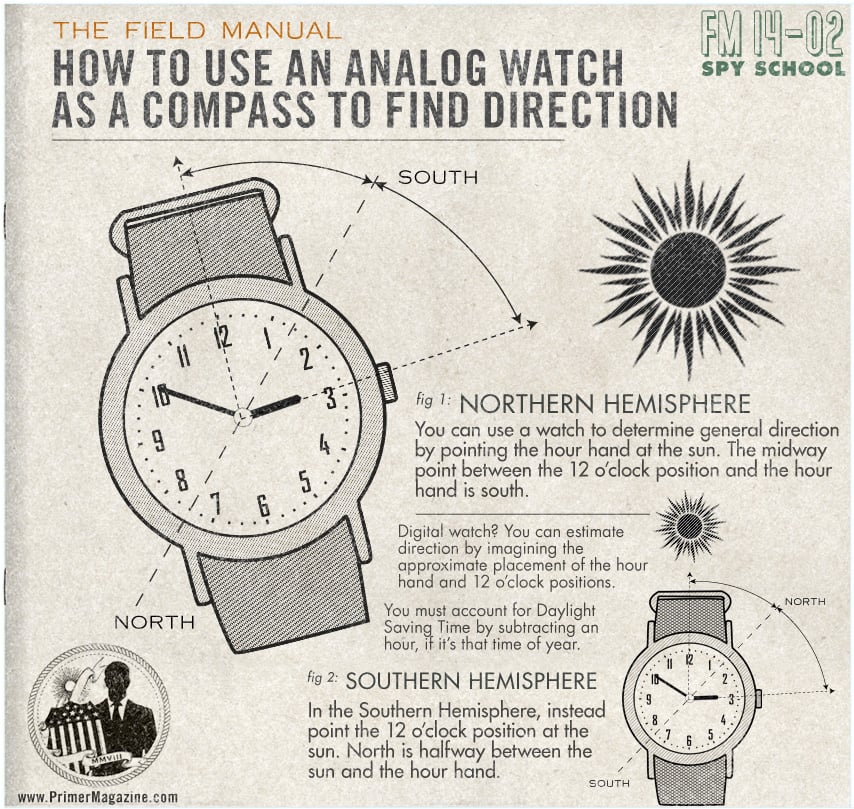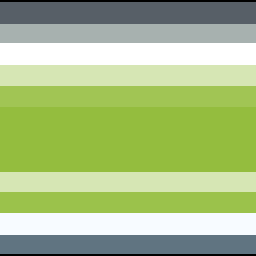“Roman numerals to be phased out”
… Damn gen WW1
I know someone said more or less the same thing when it was posted on Tumblr, but if the schools realize most of their students don’t know a thing they should know… Shouldn’t they teach it?
Honestly, how often do you read analog clocks?
I mean, I learned it as a child, but it’s been probably months since I actually had the need to read an analog clock, and I’m just not used to it anymore. I have to think about it, 20 years ago it was just my spine doing the thinking and it felt effortless.
Every day? I use an analog watch face on my smartwatch, I have an analog clock in my car, I have another couple at home….
So what? I don’t.
I don’t have a smart watch and hardly anybody I know actually owns some analog clock?
Take a look around you. Where are any analog clocks? Church towers, train stations, old people. That’s pretty much it. Your smartwatch is a choice. You could just as well use a digital watch face. There is literally no benefit in that case - except your personal preference.
You literally asked “Honestly, how often do you read analog clocks?” and I answered. And then you say “So what?” So why did you even ask if you were gonna turn around and belittle answers?
It’s called rhetorical question.
I’d argue that you are a very small minority. Most people under 50 probably barely have any analog clocks around.
I disagree, I am under 50 and wear an analog wristwatch every day, but if I want to know the time I just look on my phone.
Most people under 50 probably barely have any analog clocks around.
Every home/apt of every under 40 year old person I have ever been in has had at least one analog clock. And most have had several.
Also, grandfather clocks are a thing. And they’re gorgeous.
Extremely anti-social to act like digital clocks are better - similar to acting like social media and Facetime calls are in any way superior to irl face-to-face interaction - as our current loneliness epidemic demonstrates
So since you don’t use something no one should learn it? Crap take.
Every day?
A lot, since I have an analog wristwatch and a wall clock. There were also analog clocks in several of the exam rooms where I last had exams.
I guess many people don’t use them regularly, but regardless, the simple fact that they still exist is enough to be worth learning about them. Not everything you learn at school is meant to be used every single day.
I actually agree with you. I can read an analog clock, but what worth is the skill? Most clocks are digital, and it gives me nothing more to read an analog one. People downvoting you is just silly. Some skills are allowed to die out if they add no value in modern life.
Someone else made a comment and I think it’s great so imma plagiarize it-
If kids are taught to read an analog clock early, which isn’t very hard to learn, they are getting a leg up on fractions, percentages, and geometry.
I don’t actually believe this is true.
It rather, I imagine that they could get an even greater leg up if that time was spent teaching something else
Yeah, same for me
I wonder how many people feel this way about writing when everyone just types/texts everything.
There are fewer and fewer applications for writing, but it’s still more important than reading an analog clock.
How so?
I genuinely don’t understand the clock-face-reading-is-a-useless-skill opinion so both seem equally important to me.
Fair enough. Most people don’t encounter analog clocks anymore. And many of us have smart watches or phones where we check the time. Since I have a non-analog watch, I don’t find I ever look at analog clocks anymore. If it’s in a room, I just don’t notice it. Growing up, it was important to know, but now I just never have a use for it. Learning is important, but there are so many more interesting and useful things to learn.
You could also make an argument about automatic or manual cars. Sure, we could teach our kids how to drive manual, but why? Most cars are automatic. If they want to have a manual car, they can learn. Otherwise it’s just a useless skill.
Yea that’s kind of what I was thinking when I said eventually handwriting will go the same way.
If people never encounter it and do all their writing on keyboards, it’ll eventually be a useless skill as well.
Daily. There’s one in my kitchen and one at my office.
It’s not just about telling time though. It’s about representing things in a different way. Correlating one thing to another, and making someone think until the representation automatically becomes the output. You are forced to see things in a different way, which is what learnding is all about.
Learning how a sundial works would teach them more than leaning how an analog clock works, in that regard.
its not in their standardized tests and that’s the only thing that determines funding. Its a nightmare …
Apparently it’s literally in the standardised tests… that’s what’s causing the problems! 😉
That is a good point, but analog clocks are IMHO in the realm of sundial clocks or audio casettes or floppy discs. Technology that was once usefull, but now it’s replaced by better alternatives. Time is after all just a number, and it does not matter how we choose to represent it.
Knowing a clock is more than just telling time.
When you’re walking with your homies you gotta be able to call out “gyat 3 o’clock” , so your fellow bros know where to look.
Ok you know what. I was ready to conclude that learning to read analog clocks isn’t that useful but you’ve actually convinced me otherwise.
Are they going anywhere, tho? They start cheap and are very energy-efficient, so I think they’d stay. If there is a probability to face them IRL it won’t be bad to learn how to read them.
Absolutely not comparable to floppy disks. The hands are a representation, not a technology. Technology-wise, most modern “analog” wristwatches are quartz, and therefore digital, not actually analog. Yet we choose to make them with hands because that provides a better representation of the passing of time.
Technology-wise, most modern “analog” wristwatches are quartz, and therefore digital, not actually analog.
Wat… that’s not how that works. Quartz watches can be digital or analog but what matters is whether it has a digital display or analog hands.
It provides a familiar representation of the passing of time.
The reason is better is because a number on its own doesn’t provide any representation whatsoever of the passing of time. It represents the current observed time, but it does nothing to represent graphically how much of the day is left.
The arguably best representation of the passing of time is a 24h analogue watch/clock, even if that has its own set of issues which make it a terrible way of displaying the current time.
Neither does an analog clock unless the arm is moving at a constant/smooth pace rather than jumping each second, which is not a given. The former at least in my experience is way more common and also fails to denote the passage of time as you describe it.
Edit: reading it again I misunderstood your intention. That being said I’m not sure the value of seeing “when the day ends” as if that info can’t be gleaned from a digital clock. This seems like a pretty specific need.
It goes beyond just showing what part of day you are in. Everything is reduced to angles. You don’t have to do any math with numbers, just look how much the pointer has to move to see how much time is left until an event you are interested in, and you get to visually compare that angle with the entire half of a day to get an even better perception of the passage of time.
This is a lot of compromises to cater to a preferred short hand for a niche demand IMO
As someone who struggled with analog clocks into my twenties, being able to see the hands move gives me a better sense of time passing and I remember reading stuff that supported that. I have a better sense how much time I have left for something looking at analog vs digital basically and it’s a fairly common experience apparently
I need reading glass (sigh I got old) With an analogue watch face I can work out the time, blurred lines can be seen. Cant read blurred numbers.
Time isn’t just a number though. Especially not when it comes to clocks. And it’s also bound to Mass.
It’s just a number equally as much as it’s just the angle of the two sticks in a circle. Analogue clocks don’t give a special insight into the nature of time
Digital isn’t better it’s just different. Also a tonne of wristwatches are still analogue.
It absolutely is tho. Usually more precise, 1:1 translatable into written text, can use the superior 24h system and uses the same reading system that is already taught in school anyways.
“Ususally more precise” > This depends on how precisely it is set, not on the display. Unless it’s a connected watch, but then it’s much more expensive and less energy efficient.
“1.1 translatable into written text” > Both are, you’re reading the same number
“Uses the superior 24h system” > Adding 12 to a number isn’t complicated. And with habit, most people who use analog watches and the 24h system know which position of the needle means what number in 24h format without doing the math. Some clocks don’t even have digits. Unless you’ve been sedated and woke up in a room without windows, you’ll know which side of 12 you’re on. And otherwise, you’ve got more pressing issues.
Right! Just to prove a point, I am going to make an NTP enabled rolex, and sync it to my microsecond accurate local NTP server! :P
deleted by creator
Yeah, but you need to factor in the distance to the transmitter. Going to add at least a few microseconds to your time accuracy!
Latency is accounted for in the sync process
There’s nothing stopping an analog clock face from representing 24h time:

I was ready to hate it but after a good look, it doesn’t look that bad. Doesn’t work for small wristwatches but could look nice for a big wall clock.
🤢 what an utter abomination
This is why puppies die
Wristwatches are just jewelry at this point tbh. They’ve been rendered completely redundant by cell phones. The only people under 60 who wear them are doing so as a fashion statement.
I’m sure a lot of wristwatch stans will downvote me but I don’t care I’m still right
Ever since college I’ve always worn a cheap watch on my wrist least for the same reason my grandpa stopped keeping a pocket watch: its more convenient to check on your wrist for the time than your pocket.
Granted we’re getting way off topic here since except for a few years its ways been a digital watch. Asserting analog watches are more numerous in models when digital watches are more numerous in sales, therefore reading an analog clock is a useful skill is odd to me. When I was wearing an analog watch for my allergies it was a flieger because the mental tax of making the hands turn into a singular time was a frustration.
I learned, though, from this that how you present time changes how you perceive time. Kids who grow up with digital representations of time consider “the current moment” in a much narrower and instantaneous scope than people who grew up thinking of time as being a spectrum on a dial
Watches are just more convenient. You don’t need to carry a phone everywhere and with texts and calls showing on the watch you don’t need to find your phone to check.
I use my watch with alarms/ timers to know when I need to clock out or in from lunch etc while I mostly leave my phone at my desk while at work so if I’m walking around the building I still get my alerts through my watch
Watches that can get alerts can show digital time. So, chalk another point up for not learning analog time.
I use my wristwatch all the time to take dogs’ pulses.
Having a cell phone next to a grumpy dog is asking for a broken cell phone. I’m sure people in other fields need wristwatches as well.
Just because you don’t use them don’t mean they’re not useful.
Also, just because they’re useful doesn’t make them necessary.
I’m a watch nerd with a collection of mechanical watches and I’m not going to downvote you because you’re right. I wear them because I like them even though I know they are anachronistic. I can’t remember the last time I interacted with somebody significantly younger than me who was wearing a watch, and as I said, I’m a watch nerd, someone’s watch is one of the first things I notice about them.
I will say that they are occasionally more convenient than other places I could check the time but I’ve built my life in such a way that I very rarely have to care about what time it is and I go weeks at a time without checking the time, just wearing them because I’m fascinated by tiny gears and springs doing their business and I like the feeling of it on my wrist.
For office attire or going out, sure.
If you’re doing repair work, running lines, etc, a watch is the choice. Your hands are busy, so a watch is what you need (Except for specific trades where you don’t want to risk it getting caught in machinery).
I can say with 100% certainty that I know large swaths of folks in their 20’s and 30’s who regularly wear watches. Some smart, some digital, some analog.
Wristwatches don’t have the negative psychologically addictive and anxiety-producing effects of smartphones
How many people wear an analog wrist watch to actually keep time anymore? It’s jewelry / a specialized tool at this point.
Depends for me. In my casual day to day I don’t but when I had a lot of appointments to meet I find it quicker to check the time on my wrist than bu fumbling for my smartphone in my pocket, something that is probably even more true for women if they store their phone in a small bag due to lack of pockets.
Also, sometimes I like leaving my phone at home because I have unfortunately developed the tendency to give it a short glance whenever I have downtime. If I still need to know the time I can still wear a wristwatch.
I wear a watch for the time. I like it more than using my phone.
Yes so do I. And how many of our friends/colleagues wear an analog wrist watch daily to check the time?
My dad and my father in law are probably the only two people i know who regularly wear them.
I used to have one, but now I set my phone clock to be displayed as an analogue clock so that kind of made it obsolete, since it now has all the benefits of an analogue display with the additional advantage of automatically syncing time and adjusting for time zones and daylight saving time.
It’s not better, it’s just different, your comparison is flawed.
Personally, I prefer analog watches for most cases, because it’s much easier for me to do calculations visually. To add 6 to 7/19 on a digital clock I need to turn on my math brain (19+6=25, 25>24 => 25-24=1), but on an analog watch I can just visually read the number opposite of 7.And that’s just one example, there are other cases, besides just being easier to read at a glance. I’ve used both digital and analog watches since birth, but analog watches are marginally better for daily use, where to the second precision isn’t necessary.
100% it is antiquated technology.
Yes.
But they don’t need to know it. So they stopped teaching it.
Anyone who wants to understand how to read an analog clock can learn it in two minutes, it’s not like you need to be taught in school. edit to add: My brother recently told me that he was at the library and his friend’s teenage daughter looked at the analog clock and said indignantly “I can’t read that!” So apparently it is true that people aren’t learning simple skills like this.
My first thought was to be appalled at the lack of education on display… But is there any real reason to keep analog clocks… other than habit and nostalgia?
It’s a cheap and easy way to teach children to visualize.
Other than the things already mentioned, you can read analog clocks easily from great distances, as long as the handles and the face have appropriate contrast (e.g. black on white). Even with impaired vision and large distance, being able to discern the rough position of black smudges on white background is enough to tell the time. This is not possible with a digital clock, because you can’t distinguish between the digits as easily. Therefore, I’d certainly argue their much better for legibility in the back of a classroom or a lecture hall.
Or on big-ass clock towers that are supposed to be visible from a large part of the surrounding area.
This might be just me but I feel like they help me think about time more clearly, and manage my time better. Maybe I’m a visual learner.
Clocks were invented before electricity. If an EMP took out all the electronics, a mechanical clock is still the best way to measure longitude at sea
While true, most clocks are quarts oscillators These days so would die also. That said, love me a mechanical clock and have a skeleton watch I daily drive.
If an emp took out all the electronics, the need to measure longitude at sea would not make my top ten concerns.
But I bet it would be in someone’s top ten concerns
You can certainly make an argument for young kids, i.e. teaching fractions and literally how to count (counting seconds).
Teenagers? No, not really. They’ll all have phones or something to tell the time by a certain age and hopefully they know their fractions / how to count. It might as well just be digital at that point.
Accessibility.
We will never get rid of the analogue clocks from our school, we’re an adult education and alternative model highschool qualifications centre.
We primarily teach adults with no to low English, adults and teens with disabilities, and adults and teens refered via corrections services.
There is a significant level of illiteracy within numeracy, and for some of our students, it’s not a failing of the education system, it’s just a fact of life given their specific circumstances (eg, acquired brain injuries are common among our students)
Some students can learn to tell time on an analogue clock even if they didn’t know before.
But even my students who will never in their life be able to fully and independently remember and recall their numbers can tell the time with an analogue clock.
I tell my students “we will take lunch at 12pm, so if you look at the clock and the arms look like this /imitates a clock/ we will go to lunch”
And now I avoid 40 questions of “when’s lunch?” because you don’t need to tell time to see time with an analogue clock, they can physically watch the hands move, getting closer to the shape they recognise as lunch time.
And my other students can just read the time, from the clock, and not feel infantalised by having a disability friendly task clock like they’ve done at other centres I work at - they’ve had a digital clock for students who can tell time, and a task clock as the accessible clock. But a well designed face on an analogue clock can do both.
I myself have time blindness due to a neurological/CRD issue, so analogue clocks, and analogue timers are an accessibility tool for me as well, as the teacher.
The swiss will never get rid of their iconic railway clocks
My first thought was “yes”, my second thought was “actually, maybe not?” and my third thought was reading the word clockwise in another comment which would need to be replaced with another word to indicate direction around an axis and its opposite
Well you can use the clock for giving headings. “that tree at 10”. Then you have historical and ornamental clocks which might be nice to read. Like you can not design a digital clock to look as good as an analog one.
But yeah. Probably not many reasons really
I just really enjoy the photo, the character looks funny. I agree that shit like this just causes division but at the same time it’s like any other rude meme towards group X or person Y. just another dumb meme to go ha ha to and move on
Ugh kids these days can’t even prime a Magneto What’s next morse code!?!
bruh I can read analogue clocks and I’m gen z. it’s probably rage bait though, so who cares :/
oh look yet another warmed over “DAE the kids r bad” talking point that i’ve been hearing literally since i learned language.
Not sure if true or clickbait, but if true it means we’ll eventually lose clockwise and counter-clockwise as descriptive references.
Bring back widdershins!
Turnwise and widdershins
Ook?
Or the phrases stick around and people in the future just wonder what a clock has to do with rotation.
Yep. Like uppercase and lowercase letters. Cause back when type was metal the uppercase letters were in the upper case. And the lowercase letters were in the lower drawers.
Likely this.
Righty tighty lefty loosey
Which today just reminds you that left handed women have lower standards for casual sex. Nobody remembers its origins in manual tool usage.
You fool! I use 24H time, which requires analogue, or a really cluttered clock face. THIS is the signature look of superiority.
Do you mean digital?
But it looks cluttered, as previously mentioned. No way to make a circle fit more radians in the same space, unless… God, my head hurts already.
Your life has to be extremely messy, to not just know which part of the day you are in. For knowing what time it is, 24h is unneccesary. For communicating time it makes sense.
THIS IS NOT THE SIGNATURE LOOK OF SUPERIORITY I MEANT DIGITAL CLOCK THE GODS BE FUCKING DAMNED I’M SO EEPY AND I WANT TO DIE BY EEPING FOREVER SKULL EMOJIIIIIIIIIII
HOW CAN I BE SO BRAZEN THE WALTER BREAKING BAD WHITE GIF DOESN’T EVEN EMBED PROPERLY 😭😭😭😭😭
It was the only way I could tell how much time is left, I didn’t have a phone till highschool. In school counting down the second till school was over was so crucial.
As if they teach us how to read those clocks anyways
deleted by creator
Real talk, is there some benefit to an analog clock that would prevent them from all being replaced by digital ones? Being able to know exactly the time in a moment’s glance seems better to me.
They’re certainly not better looking than a digital one, considering most of the ones used in schools are just the cheapest and most basic version they can get.
Power requirements maybe? Longevity?
They convey time instantly, without reading. You don’t even need the numbers for them to work. It’s like showing a progress bar versus just giving the percentage as a number.
Genuine question, how precise do you need the time to be? Maybe you actually need precise readings for something. I figured that “on the 5 min marker”, “slightly before/behind the 5 min marker” and “in the middle of two 5 min markers” is precise enough for me. And I see a hand at these positions faster than reading numbers.
I think for precise readings (eg. entering the time I start working), the speed is the same for me, but obviously I didn’t test this.
I also think looking at the time but a few seconds later still not knowing what time it is happens less on an analog clock.
I don’t know how much personal preference influences this though.
Loads of places round working time to whole quarter hours
An analog clock is just three sets of loading bars with their ends glued together. You can tell geometrically what proportion of each division of time (day, hour, and minute) are spent and what proportion remains. You don’t even need the numbers.
If you need stopwatch-level precision, sure, a digital display is superior. But how often do you need that? Most of what I need clocks for is, “Oh, it’s about a quarter to noon, I have a lunch appointment to get to”.
It is my personal preference to visually intuit that the clock hands are roughly separating the hour into 3/4 spent and 1/4 remaining and use that to know how much time I have left to the hour, rather than read the symbols “42” on the display and manually do the mental gymnastics of “well that’s basically 45, which is three quarters of the way to 60 minutes”.
I’ll admit this benefit is marginal.
I think that’s an interesting way to look at it. I find it easier to do the mental gymnastics, as you call it.
It helps give people a geometrical understanding of the cyclic nature of time.
Lol I don’t think that’s true, and I don’t think those words work the way you used them anyway
Sounds like you just didn’t understand. Each hour of the 12 on the clock takes up 30° of the circle, and we measure time in cycles of hours, minutes, seconds that all match up well with the 360° of a circle.
Cutting pizza would also teach kids a geometrical understanding of how circles work, I don’t see how that translates at all to being innate to reading a clock. I know tons of people who can read a clock who suck at math. It seems like an incredibly weak assertion.
Making any excuse to not learn how analog clocks work is what’s really a weak assertion. It’s not that fucking hard.

Can’t do that with a digital display, can you?
deleted by creator
Not if you can’t imagine analogue clock.
Their method is “imagine a clock face showing that hour” how are you going to do that if you don’t know how analogue clocks work?
Yeah, but you have to imagine it, and some people have Aphantasia. Have a watch ready for when you suddenly can’t form mental images any more and also get lost somewhere.
Being able to know exactly the time in a moment’s glance seems better to me.
That seems more like a pro for analogue to me. It’s much easier with an analogue clock since you get a visual presentation of time. Whenever someone tells me a time, I have to first imagine an analogue clock to understand what that time means.
Honestly that’s just about being used to one versus the other. For me it’s basically the other way around
You can use them as a crude compass next time you find yourself unexpectedly in the wilderness.
It proves to be somewhat useful as an example when trying to teach fractions and decimals, something we are absolutely terrible at teaching. Incomprehension of fraction to decimal conversion is why 90% of people who say they are bad at math, say they are bad at math.
Incomprehension of fraction to decimal conversion is why 90% of people who say they are bad at math, say they are bad at math
I feel called out. I was in high-school Calculus (11th grade) before I “truly” understood fractions. Like, I honestly somehow managed to make it to Calculus without knowing how to add and subtract fractions without a calculator. Thought I was dumb in math until 9th grade algebra, and didn’t start becoming a bit of a math nerd until Calculus
Teaching someone how to read a clock for the sole purpose of using it as a math example seems like a poor use of effort.
I wouldn’t say that’s the sole purpose, just an additional purpose to being able to tell time. It’s also useful if the kid wants to be a pilot.
So what are the purposes? Nobody uses analog clocks anymore so afaict:
- To teach fractions
- Something to do with being a pilot???
What am I missing? 😛
Clockwise, counter clockwise. Classic time shorthand (IE, half past ten, quarter to eleven). Time estimations (easy to see a half minute on a analog clock, digital just goes from 2:00 to 2:01)
I think analog clock displays are more elegant, and are overall nicer than digital. Personal preference though.
I’m not saying nobody should learn it, I’m saying it’s not a great use of school resources. If you appreciate the aesthetic or functionality, then by all means go out and learn it. I personally like them, but I think that it should remain out of the curriculum for purely practical reasons.
I still don’t really see any useful skills that learning an analog clock teaches you, besides how to read an analog clock, which isn’t useful because analog clocks are so rare IRL.
The handful of useful skills they assist teaching isn’t worth it because there are better ways to teach those things. The clock isn’t so good at teaching all those things that it’s worth using the clock instead.
From a practicality standpoint, a round clockface is easier to create a mechanical drive system for.
You can create a digital mechanical face (see: Flipboard style numerical displays) but they usually require more gears and are more susceptible to wear and tear than the gears of a round clock face.
The simplest designs for mechanical digital displays actually just take 24 hour and 60 minute/second circular displays and hide the other numerals as the clock face spins around. Technically this I suppose counts as both analog and digital?
Example:

As for electronic displays? Nah not much of a reason to use a round display unless again, you have an electric-mechanical drive and want to save on gears and parts.
I prefer analogue clocks because I tend to have time blindness with ADHD, and it’s easier to see at a glance how much time is visually left in an hour or how much time is passing with an analogue clock. Just knowing that “15 min left” isn’t really as effective as being able to see a visual representation of “15 min left”, for example.
No one knows how to read a sextant any more. The horror!!
Analog clocks are not really essential technology.
Ok but there are still many places with analog clocks, learning how they work shouldn’t take more than 5 minutes.
deleted by creator
























